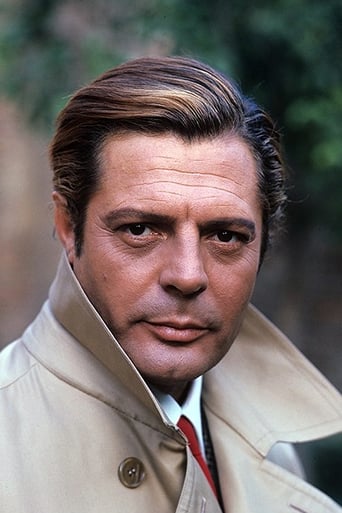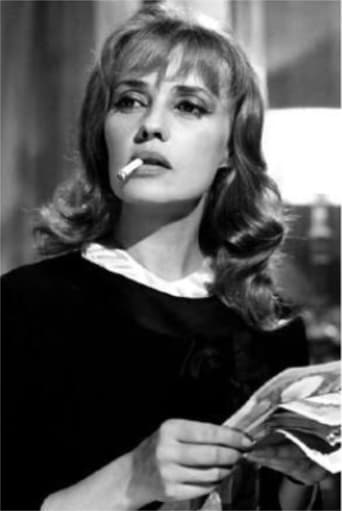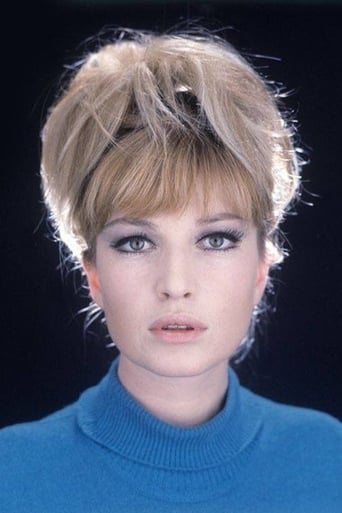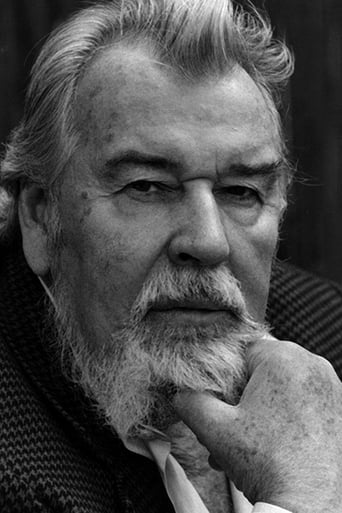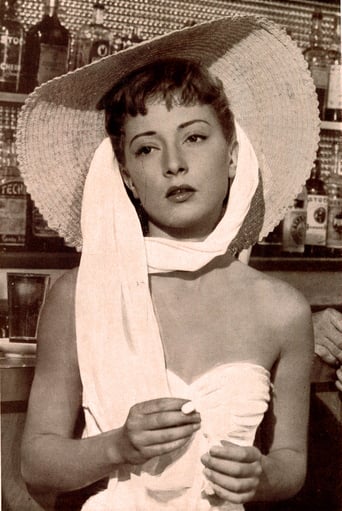Dorathen
Better Late Then Never
Whitech
It is not only a funny movie, but it allows a great amount of joy for anyone who watches it.
ThedevilChoose
When a movie has you begging for it to end not even half way through it's pure crap. We've all seen this movie and this characters millions of times, nothing new in it. Don't waste your time.
Alistair Olson
After playing with our expectations, this turns out to be a very different sort of film.
jb georges
Very beautiful photography, excellent acting, very melancholic and even depressing atmosphere... It's a very sad, cold and disillusioned description of how a couple look like when love is gone, in a post-war society where money and idleness have replaced traditional Christian values. I was somewhat upset by the very conceptual (too?)and intellectual treatment of the subject. And I was so much contaminated by Jeanne Moreau's spleen and bother(thanks to hear great acting) that it ended up as a rather unpleasant experience for me. But it was definitely worth watching even if I clearly prefer "l'avventura" and "l'eclisse".
Christopher Culver
In the late 1950s and early 1960s, the Italian director Michelangelo Antonioni shot a series of films exploring the psychological torment of his bourgeois protagonists. In spite of the wealth and security they established, they had no idea what they wanted in life or what they were supposed to do. In spite of busy social lives, they found it impossible to truly connect with other people. LA NOTTE, from 1961, is one of these, and I think it's the very best of them.As the film opens, one morning in Milano, married couple Giovanni (Marcello Mastroianni) and Lidia (Jeanne Moreau) visit their friend Tomasso (Bernhard Wicki) in the hospital as he lays dying. Lidia is clearly shaken by the experience and, after Giovanni leaves for an appearance to promote his new book, the camera tracks Lidia through a long, aimless walk around Milano as she processes her thoughts. Here Antonioni (anticipating his later film Il Deserto Rosso) shows the drastically changing face of Milano in the postwar construction boom, and the appearance of new tech gadgetry in everyday life, as just one more way people can feel they have nothing certain they can hold on to in this world.Giovanni and Lidia, while never outright squabbling, have clearly grown cold towards each other. Gradually one begins to wonder if there is any life left in their marriage whatsoever. Things come to a head, however, when Giovanni and Lidia go that evening to a party at a rich industrialist's villa, and Antonioni's favourite actress Monica Vitti appears. Vitti's role as a foil to Giovanni and Lidia is powerful and moving, but I think its precise nature should be left unsaid here, as it's better audiences aren't spoiled first.A mere description of the plot might seem like nothing happens in this film besides bored people talking and yet another mid-century European cinematic tale of adultery. But LA NOTTE is a film of incredible visual poetry, almost like the work of Andrei Tarkovsky. Even scenes that evoke the characters' boredom are shot as such beautiful tableaux that the viewer is enraptured. Antonioni often shoots his characters reflected in mirrors and the like, and there is some cinematic legerdemain here that just makes you go "wow".Appearing in Antonioni's body of work between two similar films that are often considered a trilogy, LA NOTTE has often got less buzz than its predecessor L'AVVENTURA, with its daring plot twist, or its successor L'ECLISSE with its chic Monica Vitti-Alain Delon love affair. But I think that in terms of the picture-perfect visuals and elegant pacing, LA NOTTE deserves every bit as much praise as those other two classic films.
Hitchcoc
I have say, I overlook my own prejudices when I view films by Italian filmmakers, at least in the golden era. Marcello and Jeanne are so dark, from the makeup used to accentuate the sadness in her eyes, to the bleakness of making it from one day to the next. Apparently, going to lavish parties with other depressed people isn't helping much. The illness and death of a friend brings things down further. Marcello seems to have the same presence in many films. He is on the surface a cad, but an artistic one. He is submerged in existential depths and enjoys nothing. Jeanne Moreau almost never smiles. She knows that to keep her husband, she has to go along with his games, and even then, he accepts her on his own terms. How can we really relate to these rich, selfish people who have nowhere to go. They make mundane seem desirable. The film is lavish and the cinematography stunning. The performances are just right and yet the characters they play are not very sympathetic.
Framescourer
I found La Notte as absorbing as L'Avventura - that is to say that I had to work a bit with it. For all that La Notte is inherently more appealing in many ways (the incidents have an inherent urban interest, like documentary) it is a rather thin film. Whereas L'Avventura has the double drama of a thriller and the bizarre dissemination of that thriller, La Notte has very little interpersonal surface drama to speak of.The principal couple, Giovanni and Lidia are a study in middle-class ennui. Two parties form the contours of the film: the first, a celebration for Giovanni's new publication; the second, the Notte of the title - a gaudy, all-night affair thrown by the suburban nouveau riche in which various half-hearted amorous situations fizzle out for both. At surise, the couple address their stymied love in an ambiguous close to the movie.The urban sprawl as reflected in Milan's Pirelli building and underpinned with Giorgio Gaslini's otherworldly electronic sounds opens the film with a statement about modernism - not that it is bad but that it is Antonioni's subject, new, possibly impervious to investigation but certainly central and influential. Indeed existential impotence is a theme for Giovanni - his doppelganger, the lothario Roberto, is not good for anything at all but he does have a good car. Machines feature in this film, helicopters, a plane - the aforementioned car defers to a sleek train at a level crossing - and young men play with rockets in a sequence which also takes in a punch-up.Marcelo Mastroianni and Jean Moreau were clearly the chief practitioners of listless wandering around the early 1960s and do Antonioni's bidding capably here. Monica Vitti's strange cameo is relatively exciting although not entirely to the point. I liked the way in which Antonioni goes about collating his shots and symbols, and admire much of the choreography of the party. However, I'm not sure that in order to make a film about the ontological pain of being bored one has to bore one's audience as well. 4/10



